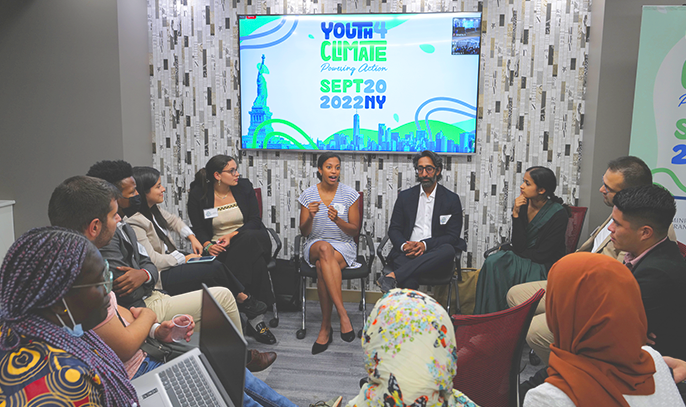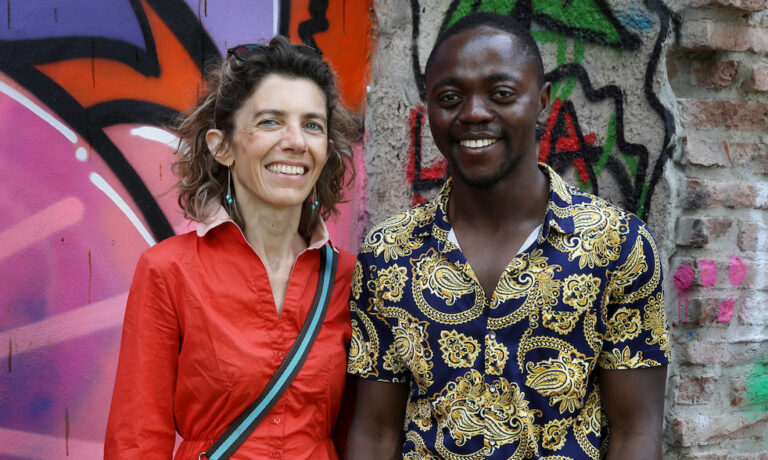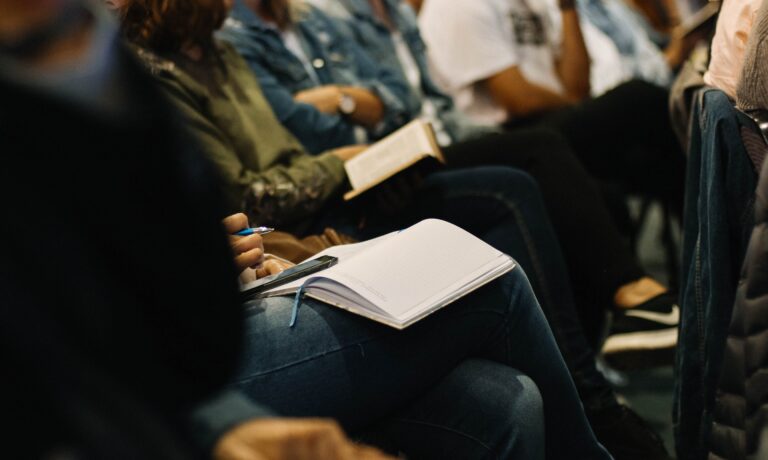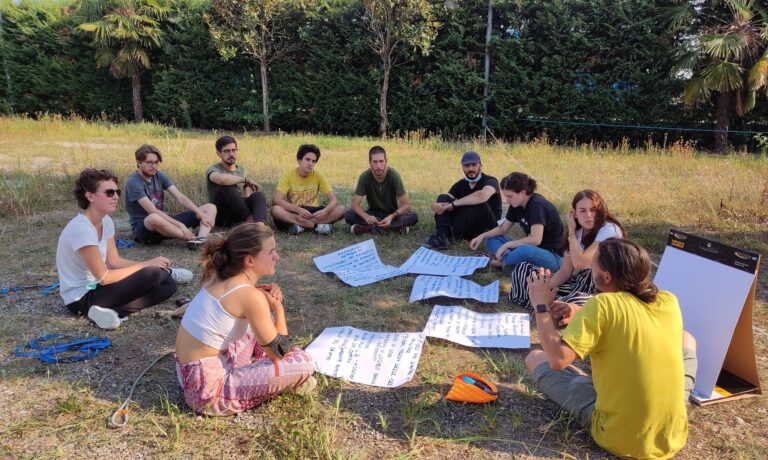ALL – Agro Living Lab Ponticelli
By expanding the social vegetable garden in Ponticelli (Naples), the project will create a new 10,000 m2 multi-purpose urban green area to be used for artistic and cultural events. All this will be achieved through a participative active-citizenship process.
Starting date
1 March 2023Duration
18 monthsRealized by:
ERA Cooperativa SocialeObjectives
Regenerating 10,000 m2 of urban and social vegetable garden that are currently abandoned; the area will be used for various types of socializing and cultural activities.
Launching a participative process creating opportunities for discussion, so as to actively involve citizens and professionals from various sectors in assembling and testing new park furniture as well as in planting trees and shrubs.
Raising citizens’ awareness through environmental education workshops, a theater festival with shows focusing on environmental issues, and artistic installations made by high school students.
Starting internship programs to train maintenance operators. These programs will be aimed at youth currently in the care of the Addiction Department of the local health authority in Naples so that they can benefit from a period of training and work in a safe environment.
The urban and social vegetable garden is located inside the “F.lli De Filippo” urban park in the Ponticelli district, in the suburbs of Naples. At present Ponticelli is a mix of abandoned industrial sites, an urban area built right next to some refineries, a very polluted stretch of sea and coastline, an area that is densely populated but lacking services and community spaces.
Social risk is high in this area: irregular income, low levels of education, families in strong economic difficulties, lack of interest for education and school activities.
This is reflected in the district data reported by the Municipality of Naples: there is a high percentage of people having low schooling levels (33.65% of the population has completed only lower secondary education); a high percentage of people (15.55%) has achieved no school certificate at all, while only 20.81% have completed higher education in general (including only 5% with a university degree). The overall inactivity rate is high (61.71%); 30% of local youth are not in education, employment, or training (NEET), and unemployment rates are at 39.95%.
The project will create a new green space in a currently abandoned area, giving it back to the local community by expanding the urban and social vegetable garden in Ponticelli.
This new multi-purpose urban green area will cover 10,000 m2 where experiments in circularity will be carried out to improve environmental and air quality, soil conditions and biodiversity protection. New trees and shrubs will be planted and the regenerated spaces will be used for artistic and cultural events, gatherings, and active citizenship activities.
- The Coordination and Communication actions will aim at extending and strengthening the local network including the local committee, institutions, schools, and the third sector, so that they can participate all together in coordinating, planning and managing the vegetable garden and the new shared hybrid spaces.
- Thanks to the Regenerating actions, the new area will become usable and its maintenance will be turned into an opportunity for empowerment and employment thanks to four internships that will support the development of a virtuous model of circular economy and learning community.
- The Living Lab and Green Experimentation actions will get the community involved in designing the green area and its various functions based on the needs of the community and shared competences. Eco-friendly park furniture will be built by hand to promote social inclusion and interaction, for example in the open-air theater. Good practices from the vegetable garden will be applied to create a permaculture garden and plant bamboo.
- Finally, the action called “Abitiamo l’orto” (Let’s inhabit our garden)will organize theater festivals and events, farmers’ markets and environmental education workshops to create further opportunities to raise awareness among the citizens, share good practices and promote culture, while strengthening local relationships and the sense of belonging to a context capable of creating environmental and social wealth.



